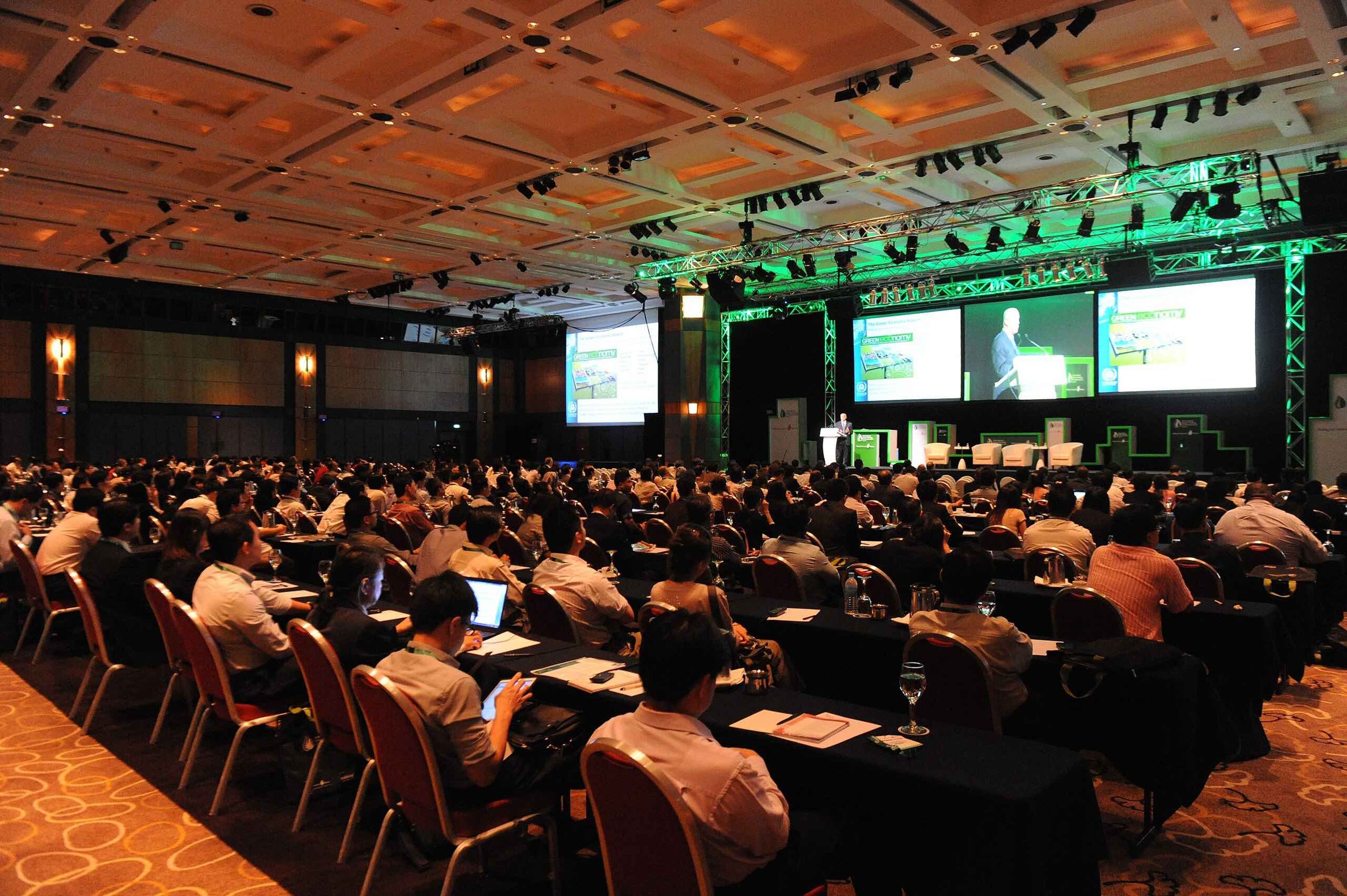In an era of rapid educational transformation, where teaching methodologies, learning technologies, and pedagogical research continuously evolve, education conferences have emerged as vital hubs of professional growth. These gatherings—ranging from intimate regional meetings to massive international conventions—offer unique spaces where theory meets practice, isolation gives way to community, and individual knowledge transforms into collective wisdom. For educators at all levels, from classroom teachers to administrators and policymakers, conferences represent concentrated opportunities for professional development that can catalyze innovation and revitalize educational practice.
Beyond the formal learning opportunities they provide, education conferences serve as powerful networking ecosystems where meaningful professional relationships form and flourish. In a profession often characterized by the paradoxical combination of constant human interaction yet professional isolation, these connections can become lifelines of support, collaboration, and inspiration. Whether through structured sessions or spontaneous hallway conversations, conferences create the conditions for the cross-pollination of ideas that drives educational advancement.
This exploration examines the multifaceted value of education conferences, the diverse types available to today’s educators, strategies for maximizing their benefits, and how these professional gatherings continue to evolve in response to changing educational landscapes and technologies. Understanding the unique role conferences play in professional growth helps educators strategically leverage these opportunities to enhance both their practice and their professional trajectories.
The Conference Ecosystem: Types and Focuses

Subject-Specific Conferences
Many educational conferences focus on particular academic disciplines or subject areas, bringing together specialists to explore the latest developments in teaching specific content. These include:
- The National Council of Teachers of Mathematics (NCTM) Annual Meeting, where thousands of mathematics educators gather to explore effective instructional practices and curricular innovations
- The National Science Teaching Association (NSTA) Conference, offering hands-on workshops and sessions on scientific pedagogy and laboratory techniques
- The International Reading Association (IRA) Conference, focusing on literacy instruction, reading research, and language arts teaching strategies
- Subject-specific conferences in fields ranging from social studies and foreign languages to physical education and the arts
These discipline-centered gatherings allow educators to dive deeply into content-specific pedagogy, curricular approaches, and assessment strategies relevant to their teaching areas. They often feature a combination of research presentations, practical workshops, and exhibits of specialized educational materials and technologies.
Technology-Focused Conferences
As digital tools transform educational possibilities, numerous conferences specifically address the integration of technology into teaching and learning:
- The International Society for Technology in Education (ISTE) Conference, the largest educational technology gathering in the United States
- EdTech conferences like FETC (Future of Education Technology Conference) and BETT (British Educational Training and Technology Show)
- Online and blended learning conferences such as the iNACOL Symposium, focusing on digital and hybrid instructional models
- Regional EdTech gatherings organized by state educational technology associations
These technology-centered events showcase emerging tools, platforms, and digital pedagogies while addressing important considerations around digital citizenship, equity of access, and effective implementation strategies. They typically feature interactive demonstration areas, hands-on learning labs, and sessions ranging from introductory tool overviews to advanced implementation discussions.
Pedagogical Approach Conferences
Some conferences focus on specific teaching philosophies, instructional frameworks, or pedagogical approaches:
- Project-Based Learning conferences like PBL World, organized by the Buck Institute for Education
- Design thinking gatherings such as the Design Thinking in Schools Conference
- Social-emotional learning events like the CASEL SEL Exchange
- Progressive education conferences such as the Progressive Education Network Conference
These specialized gatherings allow educators committed to particular instructional approaches to deepen their practice, troubleshoot implementation challenges, and connect with like-minded colleagues. They often feature model classrooms, student showcases, and extended workshops that provide immersive learning experiences.
General Education Conferences
Broader educational conferences address diverse topics relevant to multiple stakeholders across educational contexts:
- ASCD (formerly the Association for Supervision and Curriculum Development) Annual Conference, covering curriculum, instruction, assessment, and leadership
- Regional and national conferences of teacher unions and professional associations
- Education research gatherings like AERA (American Educational Research Association)
- Leadership-focused events such as the National Association of Secondary School Principals (NASSP) Conference
These wide-ranging conferences offer diverse programming tracks allowing attendees to customize their experience based on role, interest, and experience level. They typically feature prominent keynote speakers addressing broader educational trends alongside specialized breakout sessions on specific practices and approaches.
Benefits Beyond Sessions: The Full Conference Experience
Networking and Relationship Building
While formal presentations and workshops provide valuable structured learning, much of a conference’s enduring value emerges from the connections formed between sessions:
- Peer networking: Educators connect with colleagues facing similar challenges, sharing solutions and building supportive relationships that extend beyond the conference itself.
- Mentorship opportunities: Less experienced educators can connect with veterans in their field, while experienced practitioners can discover the energy and fresh perspectives of newcomers.
- Cross-role understanding: Teachers, administrators, researchers, and policymakers interact in ways that rarely occur in everyday professional settings, gaining insights into different educational perspectives.
- Collaborative possibilities: Many research projects, co-authored articles, and innovative programs begin as conversations at conferences, leading to productive professional partnerships.
These relational aspects of conferences often yield the most significant long-term impact, creating professional networks that provide support, accountability, and opportunities throughout an educator’s career.
Exposure to Educational Resources
The exhibit halls and vendor areas of education conferences offer efficient exposure to a wide range of educational materials, technologies, and services:
- Curricular materials: Publishers showcase textbooks, digital resources, and supplementary materials across grade levels and subject areas.
- Educational technology: Software developers and hardware manufacturers demonstrate emerging tools and platforms for teaching and learning.
- Professional services: Consultants, professional development providers, and educational service organizations present their offerings.
- Nonprofit resources: Foundations, museums, government agencies, and nonprofit organizations highlight free or low-cost educational opportunities.
Professional Recognition and Growth
Conferences provide venues for professional advancement and recognition through multiple channels:
- Presentation opportunities: Educators who share their practice through conference presentations gain valuable public speaking experience, add credentials to their professional profiles, and receive feedback on their work.
- Award recognition: Many educational organizations announce annual awards at their conferences, highlighting exemplary practice and innovation.
- Leadership roles: Active conference participation often leads to committee appointments, proposal review opportunities, and other leadership roles within professional organizations.
- Publication possibilities: Interactions with educational publishers, journal editors, and media representatives at conferences can open doors to writing and publication opportunities.
These professional growth dimensions make conference participation valuable not just for immediate learning but also for long-term career development and advancement.
Maximizing the Conference Experience: Strategic Approaches
Pre-Conference Planning
Thoughtful preparation significantly enhances conference benefits:
- Clarify objectives: Educators should identify specific knowledge gaps, questions, or challenges they hope the conference will address.
- Strategic scheduling: Reviewing program offerings in advance allows for creating a balanced schedule that alternates between intensive learning sessions and networking opportunities.
- Team coordination: When multiple educators from the same institution attend, coordinating session choices allows for covering more ground and bringing back diverse insights.
- Research presenters: Investigating the background and previous work of key presenters helps identify the most relevant and potentially valuable sessions.
- Connect in advance: Many conferences offer apps or online communities that allow attendees to begin forming connections before arriving at the event.
This advance preparation transforms the conference from a potentially overwhelming experience into a strategically focused professional growth opportunity.
Active Engagement During the Conference
Maximizing learning during the event requires intentional participation:
- Selective session attendance: Sometimes the most valuable choice is skipping a session to process information, connect with a key contact, or explore the exhibit hall when it’s less crowded.
- Active participation: Asking questions, participating in discussions, and volunteering for demonstrations enhances learning and creates memorability.
- Strategic networking: Identifying specific individuals or organizations for connection and preparing thoughtful questions or conversation starters facilitates meaningful interactions.
- Reflection time: Building in breaks for processing information—whether through journaling, discussion with colleagues, or quiet contemplation—enhances retention and application.
- Digital documentation: Taking strategic photos, recording voice notes, and using digital tools to capture key insights preserves learning for future reference.
These active engagement strategies help educators move beyond passive consumption to become architects of their own professional learning experience.
Post-Conference Implementation
The true value of conference learning emerges through thoughtful implementation:
- Formal sharing: Structured opportunities to share insights with colleagues—whether through formal presentations, written summaries, or curated resource collections—benefits both the attendee and the broader educational community.
- Action planning: Transforming inspiration into specific, scheduled action steps increases the likelihood of meaningful implementation.
- Ongoing networking: Maintaining connections formed at conferences through social media, email exchanges, or virtual meet-ups extends the collaborative benefits beyond the event itself.
- Experimental implementation: Testing new approaches or tools in limited contexts before broader implementation allows for adaptation to specific educational environments.
- Reflective evaluation: Assessing which conference learnings proved most valuable informs future professional development choices and conference selection.
Through these implementation strategies, conference learning becomes a catalyst for sustainable change rather than a temporary inspirational experience.
The Evolving Conference Landscape: Trends and Innovations
Virtual and Hybrid Models
The educational conference landscape has expanded beyond traditional in-person gatherings to include:
- Virtual conferences: Fully online events featuring webinar-style presentations, digital networking lounges, and virtual exhibit halls
- Hybrid gatherings: Conferences offering both in-person and remote participation options
- Asynchronous components: Recorded sessions and extended digital access allowing for flexible engagement
- Micro-conferences: Shorter, more focused virtual events addressing specific topics or challenges
These evolving formats increase accessibility while presenting new challenges and opportunities for meaningful engagement and connection.
Interactive and Participatory Formats
Conference session structures have evolved beyond traditional lecture formats to include:
- Unconferences: Participant-driven gatherings where attendees propose and lead sessions based on immediate interests
- Edcamps: Free, participant-driven professional development events organized by educators for educators
- Design thinking workshops: Interactive sessions where participants collaborate to address educational challenges
- Maker spaces: Hands-on areas where educators can experiment with materials and approaches
- Learning labs: Immersive environments demonstrating innovative classroom configurations and approaches
These interactive formats recognize that educators, like their students, learn best through active engagement rather than passive reception.
Integration with Broader Professional Learning
Conferences increasingly position themselves within continuous professional learning ecosystems:
- Pre-conference learning experiences: Online modules or reading groups preparing attendees for deeper engagement
- Post-conference communities of practice: Sustained collaboration groups extending conference learning
- Micro-credentials: Competency-based recognition for skills developed through conference participation
- Conference-connected coaching: Follow-up support helping educators implement conference learnings
This integration helps address the perennial challenge of translating conference inspiration into sustained classroom practice.
Conclusion: Conferences as Professional Growth Catalysts
Education conferences represent far more than temporary gatherings or occasional professional development experiences—they serve as vital intersections where research meets practice, isolation transforms into community, and individual knowledge becomes collective wisdom. At their best, these professional convergences catalyze both personal growth and system-wide innovation, creating ripple effects that ultimately benefit the students at the heart of educational enterprise.
For individual educators, strategic conference participation offers refreshed perspective, expanded professional networks, exposure to cutting-edge practices, and renewed enthusiasm for their educational mission.


